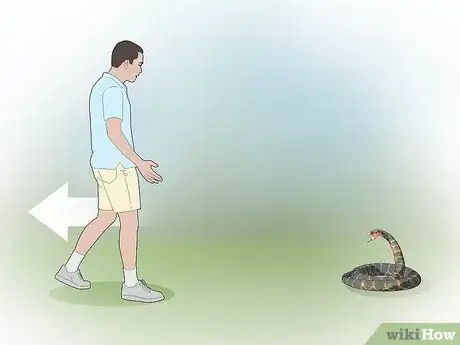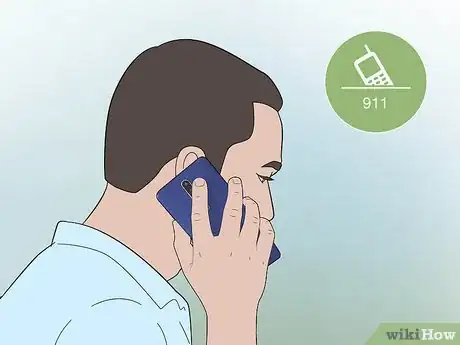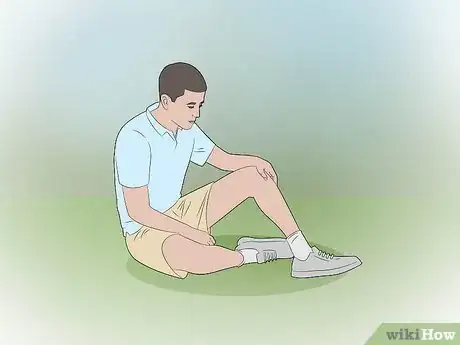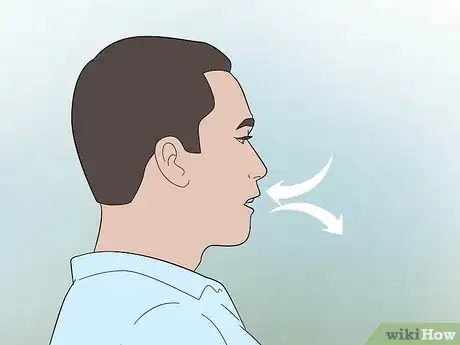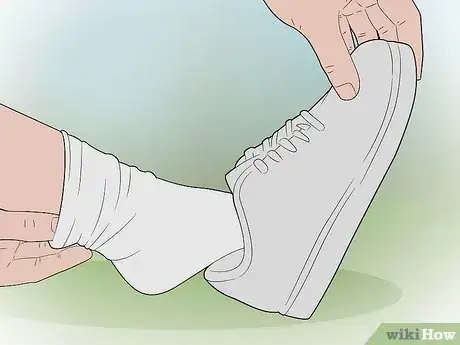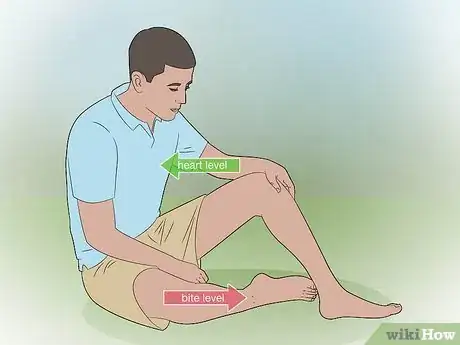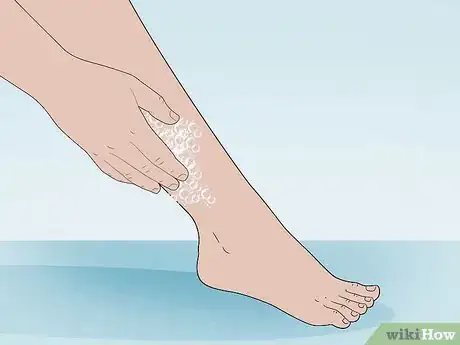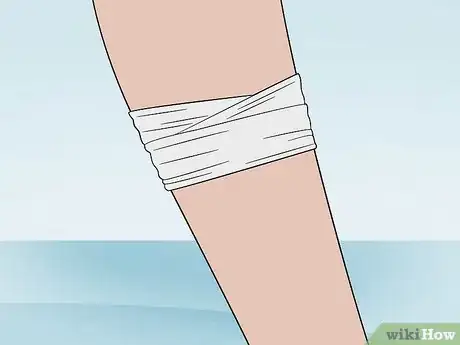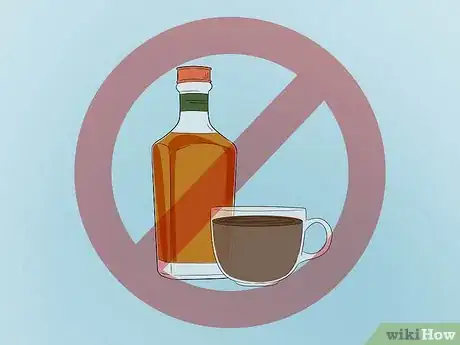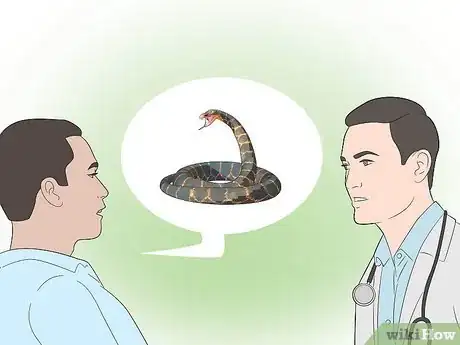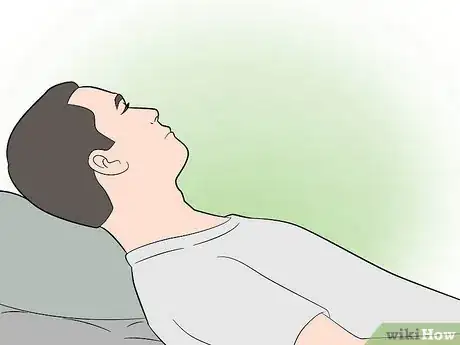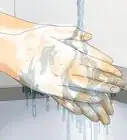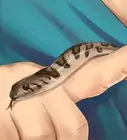This article was medically reviewed by Jonas DeMuro, MD and by wikiHow staff writer, Caroline Heiderscheit. Dr. DeMuro is a board certified Pediatric Critical Care Surgeon in New York. He received his MD from Stony Brook University School of Medicine in 1996. He completed his fellowship in Surgical Critical Care at North Shore-Long Island Jewish Health System and was a previous American College of Surgeons (ACS) Fellow.
wikiHow marks an article as reader-approved once it receives enough positive feedback. In this case, several readers have written to tell us that this article was helpful to them, earning it our reader-approved status.
This article has been viewed 497,692 times.
The key to surviving a venomous snake bite is to stay calm and seek medical attention immediately so a doctor an administer an antivenom drug. It's especially important to seek help if the bite mark changes in color, starts to swell up, or is painful. Venomous snake bites can cause severe injury and sometimes death, so don't hesitate to call 911 or to head to the hospital if you're bitten. Read on for more tips to survive a venomous snake bite.[1] X Trustworthy Source Mayo Clinic Educational website from one of the world's leading hospitals Go to source
Steps
Move out of the snake’s reach.
-
Walk backwards away from the snake until you reach a safe location. If you’re with other people, make sure everyone else stays clear of the snake as well. When you get to safety, sit down. Bites can cause victims to pass out, which would be more dangerous from a standing position.[2] X Trustworthy Source Mayo Clinic Educational website from one of the world's leading hospitals Go to source
Call 911 or go to the ER immediately.
-
Getting medical attention is your top priority. Call 911 immediately if you're located in the USA. Antivenom is necessary to treat serious and life-threatening effects of venomous snake bites, and it will be provided by emergency medical services and by your local hospital.[3] X Trustworthy Source Mayo Clinic Educational website from one of the world's leading hospitals Go to source
- For emergency service phone numbers outside of the US, click here.
Keep your body as still as possible.
-
Keeping your body still could slow the venom’s spread. It's especially important to keep the limb or area that's been bitten still. Moving around could cause the venom to spread through your body more quickly.[4] X Trustworthy Source Mayo Clinic Educational website from one of the world's leading hospitals Go to source
Take deep breaths to stay calm.
-
Keeping stress levels low will slow the venom. Focus on your breathing. If you’re with other people, let someone else be the one to call 911 so you can focus on staying relaxed.[5] X Trustworthy Source Cleveland Clinic Educational website from one of the world's leading hospitals Go to source
Remove jewelry or tight clothes near the bite.
-
Take these items off immediately before the swelling starts. Jewelry, shoes, socks, or tight clothes of any kind can cause even more damage to a swelling snake bite. If the swelling has already started, do your best to remove the items as quickly as possible.[6] X Trustworthy Source Mayo Clinic Educational website from one of the world's leading hospitals Go to source
Keep the bite location below your heart.
-
Positioning the bite below your heart will help slow the venom's spread. The venom will spread slower from the snake bite location if it stays below your heart. If you get bitten on the leg, for example, sit with your chest up and your legs laying flat on the ground to keep your heart above the bite.[7] X Trustworthy Source Mayo Clinic Educational website from one of the world's leading hospitals Go to source
Clean the wound with warm, soapy water.
-
Removing dirt from the area without aggravating the wound will help. Use soap and water to gently clean the snake bite wound. Don’t wash thoroughly or aggressively, because if you completely remove the venom and haven’t gotten a good look at the snake, this can make it harder to treat with the correct antivenom.[8] X Trustworthy Source Mayo Clinic Educational website from one of the world's leading hospitals Go to source
Wrap a bandage tightly over the bite.
-
A pressure bandage can help slow the spread of venom. Find a wrap that's clean and dry. Cover the snakebite. If possible, tightly wrap a pressure bandage around the wound.[9] X Trustworthy Source Cleveland Clinic Educational website from one of the world's leading hospitals Go to source
Avoid treatments that can make a bite worse.
-
Some common emergency home treatments are unsafe for snake bites. Avoid consuming alcohol as a means of managing pain. Drinking caffeine could cause the venom to move through your body faster, so avoid coffee and tea. You should also avoid:[10] X Trustworthy Source Mayo Clinic Educational website from one of the world's leading hospitals Go to source
- Using a tourniquet
- Applying ice
- Cutting the wound
- Attempting to remove or suck out the venom
- Submerging the bite in water
Describe the snake to your doctor.
-
This helps your doctor provide the right antivenom as fast as possible. Antivenom is a medicine administered via injection or IV that counteracts the most serious effects of snake venom in the body. Specifically, it prevents venom from binding to tissue, which can cause blood clotting, kidney damage, and damage to the nervous system. If you or a friend can remember distinctive features on the snake, this will be extremely helpful to your doctor. For example:[11] X Trustworthy Source Mayo Clinic Educational website from one of the world's leading hospitals Go to source
- Length
- Girth
- Head shape
- Pattern on its body
- Additional distinctive traits (like a rattling noise before striking)
Let your body rest and recover.
-
Suffering a venomous snake bite is serious, so give your body time to heal. Depending on the kind snake bite you received, recovery could take anywhere from two weeks for children to multiple months for adults. There are many other factors that affect the length and severity of treatment, so always follow your doctor's instructions.[12] X Trustworthy Source Cleveland Clinic Educational website from one of the world's leading hospitals Go to source
- No matter what, a venomous snake bite will mean remaining in the hospital for 24 hours to be monitored by your doctor.
You Might Also Like
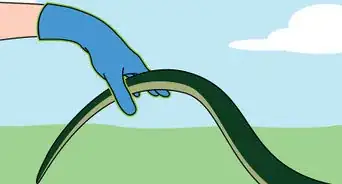
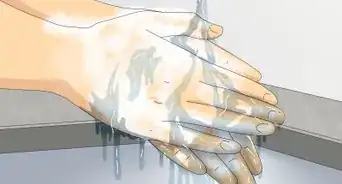
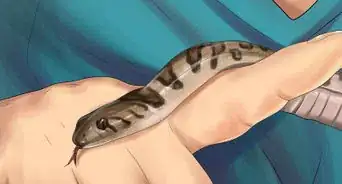
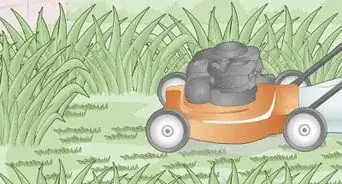
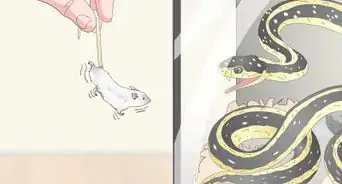
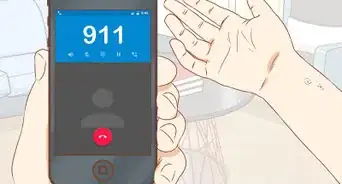
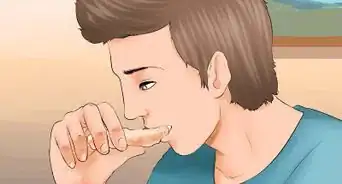
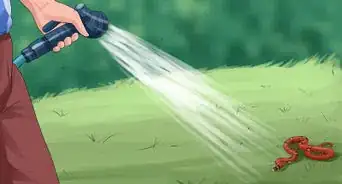
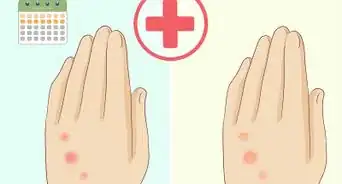
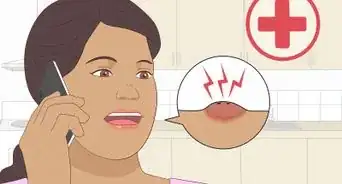 Something Bit Me! Common Insect Bites (with Pictures)
Something Bit Me! Common Insect Bites (with Pictures)
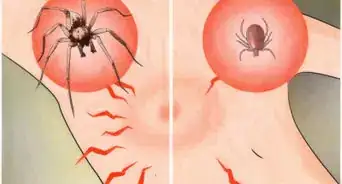
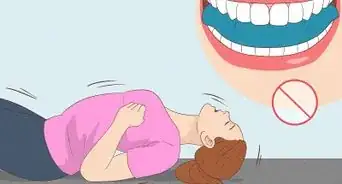 How to Heal a Bitten Tongue Fast: Expert Advice
How to Heal a Bitten Tongue Fast: Expert Advice

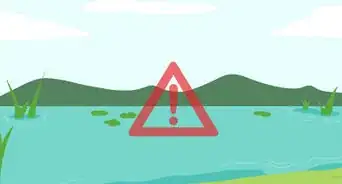
References
- ↑ https://www.mayoclinic.org/first-aid/first-aid-snake-bites/basics/art-20056681
- ↑ https://www.mayoclinic.org/first-aid/first-aid-snake-bites/basics/art-20056681
- ↑ https://www.mayoclinic.org/first-aid/first-aid-snake-bites/basics/art-20056681
- ↑ https://www.mayoclinic.org/first-aid/first-aid-snake-bites/basics/art-20056681
- ↑ https://my.clevelandclinic.org/health/diseases/15647-snake-bites
- ↑ https://www.mayoclinic.org/first-aid/first-aid-snake-bites/basics/art-20056681
- ↑ https://www.mayoclinic.org/first-aid/first-aid-snake-bites/basics/art-20056681
- ↑ https://www.mayoclinic.org/first-aid/first-aid-snake-bites/basics/art-20056681
- ↑ https://my.clevelandclinic.org/health/diseases/15647-snake-bites
About This Article

The best way to survive a snake bite is to call emergency help and stay calm. Make a splint to restrict movement, and keep the area below the heart so the venom doesn't spread. Don't try to suck the venom out. Instead, allow the bite to bleed and cover it with a loosely wrapped bandage. Read on for more tips from our Surgical reviewer, including how to accurately tell the paramedics what type of snake bit you.
